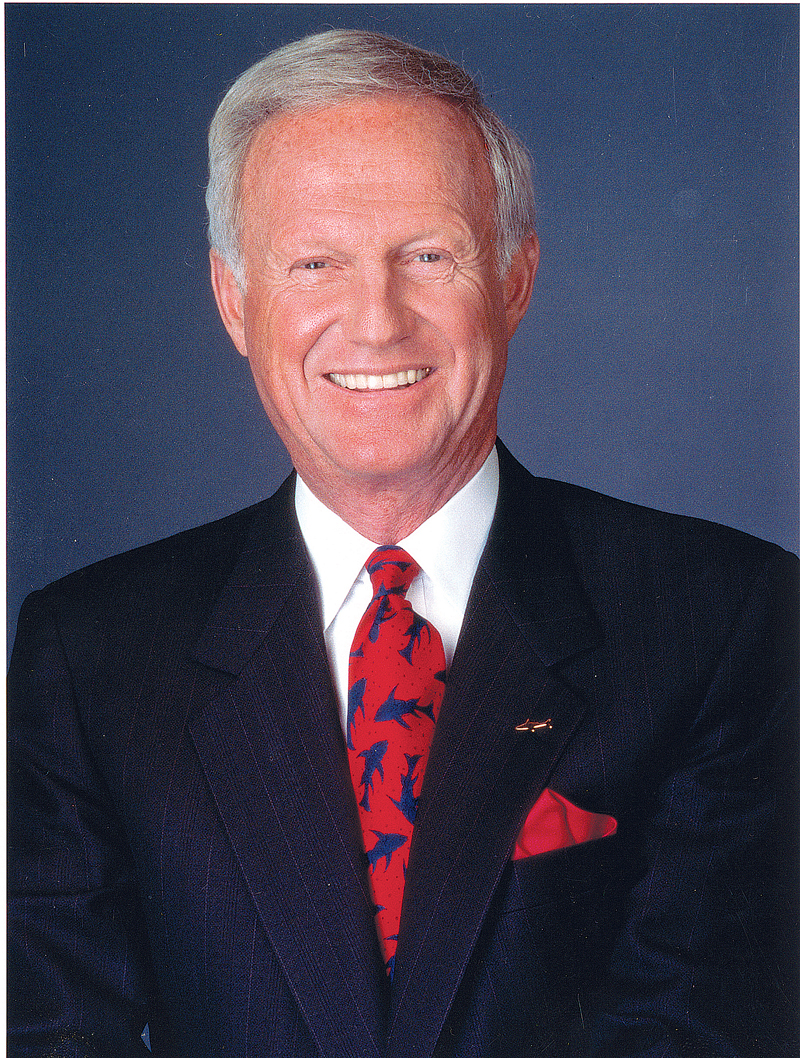As much as I love basketball and football, there’s a certain magic about the great national pastime.
For me, baseball is a learning experience, full of life lessons!
In one “Peanuts” cartoon, Charlie Brown is having a bad day. He strikes out for the third straight time.
Back in the dugout, he laments to Lucy, “I’ll never be a big-league ballplayer. All my life, I’ve dreamed of playing in the big leagues, but I just know I’ll never make it.”
Lucy responds, “You’re thinking way too far ahead, Charlie Brown. What you need are more-immediate goals.”
“Immediate goals?” asks Charlie.
“Yes,” says Lucy. “Start right now with this next inning. When you go out to pitch, see if you can walk out to the mound without falling down.”
Moral: Goals need to be realistic: beyond your grasp but within your reach in the foreseeable future.
A high school baseball coach was frustrated with his first baseman, who made error after error. At practice, the coach grabbed a glove to show the player how it should be done. The first grounder took a bad hop and clobbered him in the chest. Next came a pop-up that he lost in the sun, and it smashed into his forehead. Later, a wild throw from the shortstop caused him to stretch, tearing his pants. Exasperated, the coach turned to his first baseman and shouted, “You’ve got this position so messed up, even I can’t do a thing with it.”
Moral: The person who wants to do something finds a way; the person who doesn’t finds an excuse.
Maintaining a good reputation can help you.
We all have weaknesses, whether it’s baseball or business.
Baseball great Stan Musial was having a field day against the Chicago Cubs’ pitcher, Bobo Newsom. Stan “the Man” first slammed a single, then a triple and a home run. When he came to bat for the fourth time, the Chicago manager decided to yank Bobo and take a chance on a rookie relief pitcher. The rookie took the ball from Bobo, and asked, “Has this guy Musial got any weaknesses?”
“He can’t hit doubles,” Bobo said.
Moral: The greatest of all weaknesses is to be conscious of none.
Maintaining a good reputation can help you in bad circumstances by giving you the benefit of the doubt.
Rogers Hornsby, considered to be among the greatest right-handed hitters in baseball history, had a lifetime batting average of .358. He also had a reputation for excellence, good judgment and integrity.
The story goes that Hornsby came to bat one day against a flashy rookie pitcher with a blazing fastball.
Whoosh went the first pitch to Hornsby, who kept his bat cocked.
“Ball one,” said the umpire.
Second pitch and third pitches, same story.
Angry and frustrated, the young pitcher shouted at the umpire, “Those three pitches were all strikes!”
“Young man,” said the umpire, “when you throw a strike, Mr. Hornsby will let you know.”
Moral: You can’t buy a good reputation; you must earn it.
I often get asked when I am going to retire. I’m still active as chairman of MackayMitchell Envelope Co., I maintain a schedule of corporate speeches, write this nationally syndicated weekly column, manage my Harvey Mackay Academy and I recently finished my eighth book. In short, I’m too busy to retire.
Pittsburgh Pirate outfielder Paul Waner was asked when he would know when it was time to quit.
“Well,” said Waner, “as you get older, you slow down and the infielders back up, because they’ve got more time to throw you out at first base. At the same time, you lose a little power, so the outfielders move in because you aren’t hitting the ball so far.” Then he added, “When they can shake hands, you’ve had it.”
Moral: A person doesn’t become old until regrets take the place of dreams.
Mackay’s Moral: No matter when the season begins, start business “spring training” so you can win the World Series.
Harvey Mackay is the author of the New York Times best-seller “Swim With the Sharks Without Being Eaten Alive.” He can be reached through his website, www.harveymackay.com.











